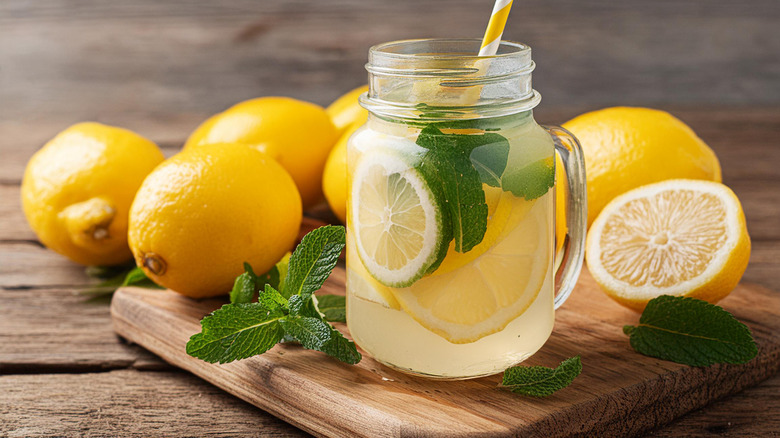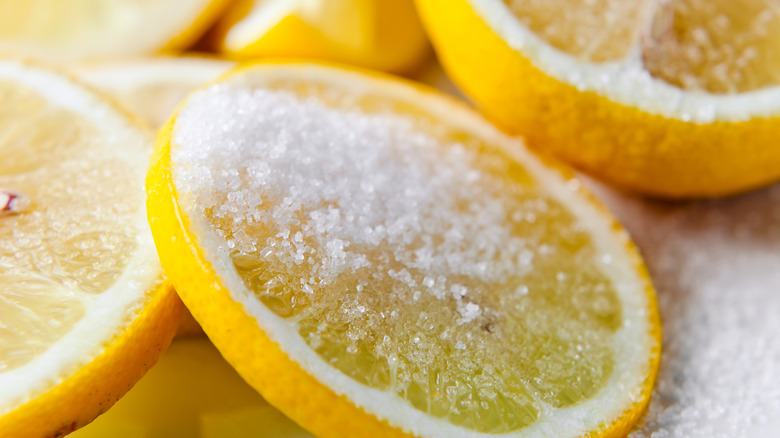The Simple Trick For Lemonade With More Flavor
With summer just around the corner, nothing beats the heat like a tangy, refreshing glass of lemonade. This citrusy, slightly sweet and sour beverage has been a fan favorite for centuries, with its origins tracing back to medieval Egypt. Truth be told, it's not that hard to see why it's become such a classic over the years — it only needs about three ingredients to make. Just mix a bit of lemon juice with some sugar and water, and you've got yourself the ultimate comfort drink.
For those brave enough to take things up a notch, however, whipped lemonade is the creamy and refreshing drink you won't be able to put down this summer. All you need is some heavy cream and condensed milk to complement the lemons. Meanwhile, you can also use some fresh herbs that will elevate your lemonade, such as lemon thyme, purple basil, rosemary or lemon grass, and they'll truly make it stand out.
If you're looking for something slightly simpler yet a little bit more special, slicing the leftover lemon rinds into chunks after you've squeezed out the juice is where you should start. You can let them sit in sugar and some of the juice (or water) overnight while giving them a nice stir now and then, and it might just be the upgrade you were after all along. It may sound strange at first, but there's a good scientific reason behind little trick, and it involves a process called maceration. The final result: a delicious concentrated lemon syrup that might just change how you make lemonade for good.
The science behind lemon maceration and why it works
Maceration has many applications, but it's most commonly associated with traditional red winemaking where it involves cold-soaking the wine must in the pressed grape skins and stalks. When used on lemons, this technique extracts the essential oils and other flavor compounds present in the rinds and eventually adds complexity to the lemonade's flavor profile. On that note, there's a reason why professionals are macerating berries for a sweeter dessert.
Once the mix is set to rest (for at least a few hours), the lemon juice and the sugar will penetrate the fruit, and ultimately break down its cell walls. In addition, the sugar will further work its way into the fruit and draw the remaining juice out. As the lemon rinds absorb everything, they'll become soft and tender, producing a naturally rich and sweet lemon concentrate. As a result, the macerated lemonade will not only taste better, but will also have a smoother, juicier texture. The longer the maceration, the more of the lemon's flavor compounds will transfer into the syrup.
When the whole process is complete, make sure to strain the mix to separate the syrup from the leftover lemon chunks, and then combine it with the lemon juice you squeezed out earlier. What's left to do then is simply add water to your liking, give the mix a good stir to bring all the flavors together, and take a nice, satisfying sip. Cheers!

